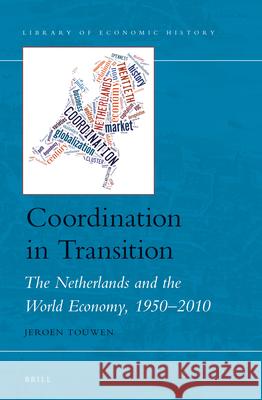Coordination in Transition: The Netherlands and the World Economy, 1950–2010 » książka
Coordination in Transition: The Netherlands and the World Economy, 1950–2010
ISBN-13: 9789004272552 / Angielski / Twarda / 2014 / 386 str.
This book analyzes the evolution of the institutional structure of the Dutch political economy since 1950. It sketches in broad strokes the origin and economic role of coordination in the Netherlands. The Dutch economy is compared with other OECD countries by using the 'varieties of capitalism' theory and distinguishing between coordinated and liberal market economies. The author focuses on the constant adaptation of deliberative institutions in the business system, in labor relations, and in welfare policy. The complex institutional setting did not prevent the economy from participating in the globalization of markets and capital that took place since ca. 1980. The book is located at the intersection of two quite different literatures: modern economic history and the political science literature on 'varieties of capitalism'.











